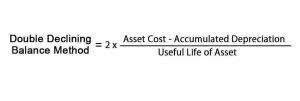
In addition, you can also identify problems in advance and minimize unnecessary admin that’s slowing your business processes down. In other words, employees don’t need to work from the central office-based computer. Some cloud software even provides you with the mobile app version, making it easier to access your numbers while you’re on the go. Accounting Periods and Methods Traditional accounting software, while effective in the past, presents several challenges in today’s dynamic business environment.

How It Differs from Traditional Desktop Solutions
This shift not only streamlines operations but also fosters a culture of innovation within accounting firms. The emphasis on real-time analytics also fosters collaboration among teams, as stakeholders can access updated financial information anytime, anywhere. This transparency enhances communication and ensures that all parties are aligned with the company’s financial goals. Ultimately, the future of cloud-based accounting will hinge on the https://www.bookstime.com/ ability to harness real-time data for better decision-making and strategic planning. Furthermore, the shift towards remote work has accelerated the need for accessible accounting solutions. Cloud-based systems facilitate collaboration among teams, regardless of location, enhancing productivity and communication.

Big-League Reconciliation for Midsize Teams
Cloud accounting operates on a subscription-based model, allowing businesses to choose a plan that suits their specific needs and pay only for the features and resources they require. This scalable approach ensures that businesses can easily adjust their subscription as their needs evolve, whether it’s scaling up during periods of growth or downsizing during times of crisis. The flexibility offered by cloud accounting enables businesses to stay agile and responsive to changing market dynamics without incurring unnecessary costs. Cloud-based accounting software is just like traditional accounting software with the exception that all the data is hosted on remote servers instead of the user’s desktop computer. Kashoo is cloud accounting software for small business owners who want the simplicity of doing their own books.
- Cloud accounting software allows you to scale your usage and storage needs up or down, making it a cost-effective solution.
- Cloud accounting as a solution became possible with the rise of cloud computing in the early 2000s.
- From invoice generation to cloud calculation and even financial reporting, cloud accounting tools like this help to reduce the amount of time spent on tedious, manual tasks.
- Evaluate and compare financial close software with ease, based on automation, audit-readiness, and performance.
- Keeping your bookkeeping and bank reconciliation up to date is vital for real-time reporting.
- This ensures that even if the data is intercepted, it remains unreadable and secure.
Benefits of Cloud Accounting
Hosting data in the cloud makes it available to automate repetitive tasks and streamline workflows using AI. Cloud accounting software integrates with third party solution providers, meaning that you can bring your tech stack under one roof—meaning one system for everything. This adds more value to the advisor’s service offering by helping to keep the business on track and comply with tax obligations. When transitioning to cloud accounting, businesses may have concerns or reservations.
- When you log in to your accounting platform in the cloud, you’re always using the latest version of the software.
- Cloud systems, however, allow multiple users to access the same data set simultaneously, with activity logs and permission controls ensuring transparency and security.
- By implementing these solutions and adopting best practices, businesses can overcome challenges and ensure a smooth transition to cloud accounting, maximizing the benefits of the software.
- Technical issues such as connectivity problems or software compatibility can also arise.
Cloud software offers flexibility, cost-savings and real-time collaborative opportunities. When combined with enhanced security, it’s clear to see that cloud accounting has so much to offer. Cloud accounting software is also an attractive solution for companies of all sizes. While transitioning from desktop accounting software to cloud accounting solutions may present some challenges, the long-term benefits far outweigh the initial effort that it takes to migrate. In addition to cloud accounting, cloud-based practice management software is a good way for you to enhance how efficient your firm is.
Leadership Team
Users can also create and send custom invoices, secure payments through WePay and provide accountants with access. The plan also comes with unlimited storage, unlimited access to personalized support at no additional cost and a mobile app to upload and match receipts to expenses in real time. TrulySmall Accounting is full accounting software for small businesses for $18 per month. Features include downloading bank transactions, sending invoices, tracking expenses, accepting payments and running essential accounting reports. For $27 a month, the Kashoo plan is an advanced accounting plan for medium- to large-sized businesses.
Accounts Payable Solutions
For example, with real-time data available in the cloud, you can track, analyse and identify patterns that may indicate potential compliance risks or fraud following relevant regulations and standards. Beyond automated fraud detection, you can analyse trends and patterns to find client opportunities and areas for growth. With data securely and immediately accessible in the cloud, there’s endless opportunities for accounting practices to grow and optimise their data. There’s still some confusion around cloud accounting, what cloud accounting meaning it’s used for, and how to implement it. In this guide, we talk you through what cloud accounting is, how it works, the benefits, and how to successfully migrate to the cloud.
- HighRadius is redefining treasury with AI-driven tools like LiveCube for predictive forecasting and no-code scenario building.
- This setup allows business owners and their finance teams to access essential financial data from anywhere, promoting seamless collaboration and more efficient financial reporting.
- By keeping your bookkeeping and bank reconciliation up to date, you can achieve real-time reporting.
- You can now meet the demands of a fast-growing business by accessing real-time financial data when needed.
What features should I look for in cloud accounting software?
This streamlining of processes not only saves time but also enhances the accuracy of financial data, allowing businesses to make informed decisions swiftly. Furthermore, the emphasis on data security and compliance is driving innovations in cloud accounting technologies. Solutions are increasingly incorporating features like automated compliance reporting and real-time monitoring to help businesses stay ahead of regulatory requirements.

When considering cost, look at the monthly subscription fee costs as well as any third-party costs, such as integrations with other software, that may be necessary to have an efficient accounting system. We prioritized software that was either low-cost or had an affordable plan in a series of pricing plans. We also gave credit to those apps that either provided users with a free version of the software or at least a free trial period. When considering the affordability of cloud accounting software, many providers have promotions going where the software is greatly reduced for a brief period, then goes up in price.






